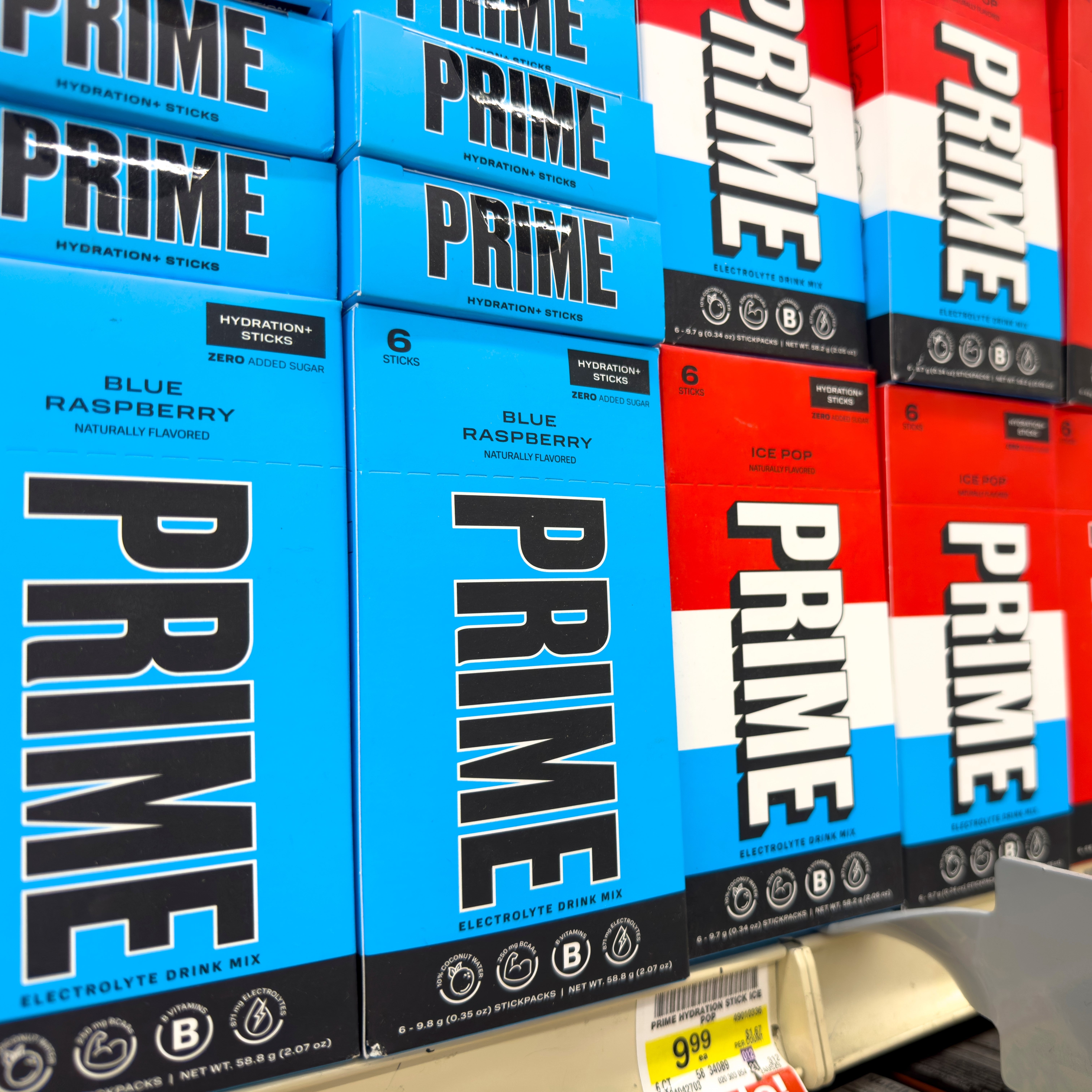Banner artwork by InFocus.ee / Shutterstock.com
With the buzz around the 2024 Summer Olympic Games in Paris, the world is not only watching athletes who are at the top of their game; our eyes are also on the companies and brands that had the foresight to become official sponsors and licensees.
For companies and brands that are looking ahead to the 2026 Winter Olympic Games in Italy or the 2028 Summer Olympic Games in Los Angeles, being aligned with the pride, grit, and determination of the US Olympics and Paralympics offers significant visibility.
What does it take for a company and its brands to share a glimmer of the Olympics limelight? Specifically, what are the key aspects that corporate counsel must consider when advising her company’s marketing executives on how their company may join Coca-Cola, Lilly, Nike, Oakley, and Visa to become an official sponsor, supporter, or licensee of the US Olympic and Paralympic teams?
This article provides guidance on that question, along with:
- A step-by-step overview of the merchandise licensing and contractual terms that counsel should consider if their company is exploring such a sponsorship arrangement with the US Olympics and Paralympics Committee.
- An overview of the Ted Stevens Olympic and Amateur Sports Act, which bestows upon the US Olympic and Paralympic Committee (USOPC) enforcement rights concerning several US Olympics-related trademarks.
- An explanation of the United States Supreme Court case that set guardrails around the use of the term “Olympics” and a lawsuit the USOPC recently filed against beverage company Prime Hydration.
Our goal is to arm corporate counsels with the necessary information and guidance so they may advise their company’s executives when navigating corporate sponsorship opportunities with the US Olympics and Paralympics.
Considerations for applying
As corporate counsel, you first will want to familiarize yourself with the USOPC’s commercial use and brand usage guidelines so you may then educate your corporate team accordingly. The USOPC publishes these guidelines to educate brands on how to become a partner of Team USA with a twofold mission: (i) enable fans to connect with Team USA via the USOPC’s brands, logos, and intellectual property and (ii) identify new products, events and partnerships that drive the USOPC’s mission and values to expand the presence of Team USA. The guidelines are available here.
Next, you’ll want to review the USOPC’s sponsorship merchandise licensing proposal requirements. You must be prepared to provide concrete examples of how your company and its brands satisfy these requirements, such as demonstrating your company’s experience producing licensed products for IP owners. For a full list of the merchandise license required information and pre-requisites, please see below.
US Olympics Sponsorship Merchandise License Proposal must include the following:
- Product description, including unique characteristics
- Target audience demographics
- Product sales volume and distribution channels
- Demonstrated ability to comply with human rights, social responsibility, and environmental responsibility
- Detailed marketing and sales plan
- Experience producing licensed product for IP owners
- Interest in specific US Olympic brands (e.g., Team USA, LA28 Games)
Assuming the USOPC accepts your company’s proposal, the next step will be to negotiate a sponsorship agreement, delineating the rights and obligations of the USOPC and your company, respectively, regarding the sponsorship arrangement. For a sample list of terms that ought to be included in the agreement, please see below.
The commercial sponsorship contract should include:
- A list of the company brands and products included in the arrangement
- Exclusivity, or not (e.g., Figs is the medical scrubs company exclusively authorized as an official US Olympics licensee)
- Duration of the sponsorship (e.g., begins two years prior to LA28 Games opening ceremonies and ends three months thereafter)
- Specifications describing the intellectual property licensing rights, ideally with exhibits that showcase the exact Olympics-related trademarks, names, logos, and emblems that company may display on company’s branded products, along with all specifications concerning font size, colors, etc.
- Territory-specific license terms, if applicable
- Payment terms
- List of the applicable print and digital (including social media) platforms on which the company may display its branded products alongside the USOPC marks, names, logos, etc.
- Indemnification, warranties, and limitation of liability provisions
- Remedies for breach
- Termination rights
- Compliance with all applicable laws
- Governing law
Once your company becomes an official US Olympics sponsor, supporter, or licensee, you may want to consider creating and delivering an in-house training program to ensure all company employees involved in the sponsorship project understand the company’s key obligations under the sponsorship agreement, especially regarding which company brands and products are involved, geographic location, and any exclusivity aspects as well as USOPC’s brand usage guidelines.
Established trademark
As a federally chartered nonprofit corporation, the USOPC’s primary role is to support and empower American athletes. The committee is also charged with protecting Olympic-related intellectual property in the United States. To this end, it has registered several Olympics-related trademarks with the U.S. Patent and Trademark Office, including “TEAM USA” and “LET THE GAMES BEGIN,” the rights for which it vehemently enforces in federal court under the Lanham Act (15 U.S.C. § 1051 et seq.).
In addition, a federal statute — the Ted Stevens Olympic and Amateur Sports Act — empowers the USOPC to use and control the use of several Olympic-related marks, logos, and images in the United States and file suit against anyone whose unauthorized usage falsely may suggest a connection with the USOPC (36 U.S.C. § 220506).
Court cases to know
USOPC v. Prime Hydration case

A recent example of the USOPC enforcing its trademark rights occurred when it sued sports drink maker Prime Hydration, founded by YouTube personality Logan Paul, alleging that Prime’s promotion of an Olympic-themed beverage willfully infringed the USOPC’s trademark rights and likely will confuse consumers into thinking that Prime is an official US Olympics sponsor or licensee. Prime also featured Kevin Durant, a Team USA basketball player, in its product promotional materials.
The lawsuit states that Prime’s use of the words “Olympic,” and “Team USA” on the label of the Prime sports drink bottles amounts to willful infringement. According to the lawsuit, Prime continued to use the infringing marks on its products despite the USOPC’s July 10, 2024, cease-and-desist letter. On July 19, 2024, the USOPC filed the lawsuit, United States Olympic & Paralympic Committee v. Prime Hydration LLC (No. 24-cv-0200), in the US District Court for the District of Colorado, alleging monetary damages and asking for injunctive relief.
It is important to note that Coca-Cola, as an official US Olympics sponsor, has the exclusive right to use the USOPC’s trademarks on beverages. Counsel should take note of this case as a clear example of the risks associated with featuring US Olympics-owned intellectual property and Team USA athletes in marketing for a company that is not an official sponsor of the US Olympics and Paralympics teams.
The “Gay Olympic Games” case
Federal law prohibits the unauthorized use of simulations of “OLYMPIC” that may falsely suggest an affiliation with the Olympic Games, such as AQUALYMPICS or MATHLYMPICS. Specifically, Section 110 of the Ted Stevens Olympic and Amateur Sports Act grants the USOPC the right to prohibit certain commercial and promotional uses of the word “Olympic.”
The U.S. Supreme Court confirmed this in San Francisco Arts & Athletics, Inc. v. United States Olympic Committee (483 U.S. 522, 1987). In that case, San Francisco Arts & Athletics, Inc. (SFAA) was using the term “Gay Olympic Games” on its promotional mailings and merchandise. The USOPC requested SFAA to cease its use of the word “Olympic” concerning the planned athletic event.
The SFAA refused, primarily on First Amendment grounds, and the USOPC brought suit in Federal District Court for injunctive relief. The court granted the USOPC summary judgment and a permanent injunction. The Court of Appeals affirmed, holding that the Act grants the USOPC exclusive use of the word “Olympic” without requiring the USOPC to prove that the unauthorized use was confusing and without regard to the defenses available to an entity sued for a trademark violation under the Lanham Act.
Thus, the USOPC was entitled to bar the SFAA from calling their athletic event the Gay Olympic Games because it has the exclusive commercial right to use the word “Olympic” and can so enforce that right.
Such considerations may seem daunting, but due diligence in following the USOPC’s requirements can lead to substantial rewards for official sponsors, including raising brand awareness globally.
For corporate counsel who are advising their companies on becoming an official sponsor or licensee of the US Olympics, that due diligence begins with becoming familiar with the USOPC’s trademarks usage guidelines and working together with the appropriate business teams to assess viability early on, reserving ample time to complete a US Olympics Sponsorship Merchandise License Proposal and to negotiate the sponsorship agreement.
In addition, until an official partnership with USOPC has been finalized, counsel should inform its company’s marketing and social media teams to refrain from publishing promotional messages or creating product branding that mention Team USA, the Olympic Games, or other references that might suggest the USOPC has anointed the company as an official sponsor or licensee.
Do’s and don’ts for Olympics-related marketing
The International Olympic Committee (IOC) provides generic advertising guidelines relating to sports to help promotors avoid infringing the rights of the national and international entities that own the Olympics-related intellectual property.
- DO not use US Olympics trademarks or logos in commercial advertising without USOPC’s authorization.
- DON’T imply any false connections with the US Olympic movement, USOPC, Team USA, etc. For example, unless you’ve got permission to do so, don’t promote your company’s gold-colored running shorts using a tagline like “Go for the Gold in ACME running shorts!” Because Go for the Gold is a federally registered trademark of the USOPC since Feb. 1, 2011.
If your company sponsors an athlete, or an athlete is a brand ambassador for your company and that athlete is competing in the Olympics, you must adhere to the Rule 40 requirements, including the “blackout period.” See IOC’s key principles for participants vis-a-vis sponsorship opportunities.
The Olympic Charter’s Rule 40 provides that Olympic athletes are not permitted to allow their name, image, or sport performance to be used in advertising during the Paris Games period (July 18 to Aug. 13, 2024). Rule 40 aims to protect the rights of official Olympics sponsors and licensees.
- DO consider varying levels of US Olympics-related marketing — e.g., sponsorship, supporter, licensee — and explore those with ample foresight.
- DON’T repost Olympics-related content to promote your products if the repost contains Olympics-branded imagery, logos, or intellectual property.
- DO follow the steps outlined in this article, including completing and submitting an official US Olympics sponsorship proposal.
- DON’T directly reference Team USA, the Olympics Games, Paris 2024, etc., in commercial advertising unless your company has the specific rights to do so under an official sponsorship or licensee arrangement.
A successful case study
Creative opportunities for successful Olympics-related target marketing abound. For example, Figs, known for “proudly outfitting the USA Medical Team and Awesome Humans everywhere,” is the medical-apparel brand that has become the first-ever sponsor for Team USA’s medical staff.
To add to the excitement of the Games, Figs plans to place heart rate monitors on the parents of some of the athletes during the competitions and display the results. It will be interesting to see if the parents’ heart rates increase while watching their kids compete on the Olympic stage.
Giving these opportunities due consideration — and planning ahead for all of the steps outlined above — can be a huge boon for your company. Have fun, and don’t hesitate to think outside the box!





